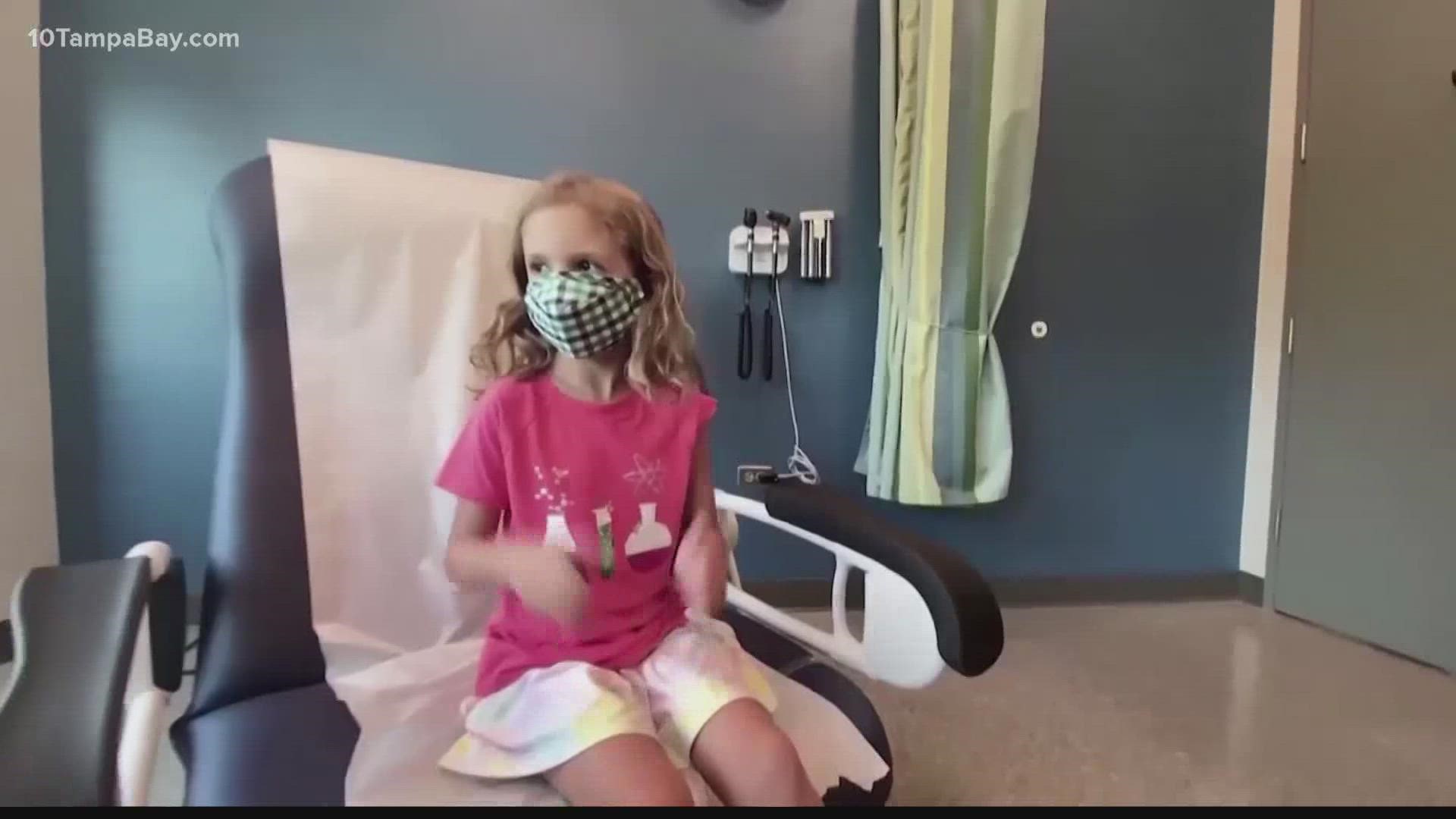ST. PETERSBURG, Fla. — Doctors say making sure kids have access to a vaccine is crucial to closing some of the disparity gaps during the pandemic. Kids ages 5 to 11 make up at least 10 percent of the cases here in the U.S. according to recent CDC data shown to an independent panel that approved the kids vaccine. Those who are Black, American Indian or Hispanic are three times as likely to end up in the hospital as those who are white.
Pediatrician Dr. Julie Morita is a member of the American Academy of Pediatrics. She's also the executive vice president of the Robert Wood Johnson Foundation. The non-profit is trying to improve vaccine access and urges employers to give parents the opportunity to take their kids to get the shots, especially those who are disproportionately impacted during the pandemic.
“It’s critical we get these vaccines into the arms of children living in these low-income communities, communities of color because we don’t want them to continue to have problems with more disease, higher risk of hospitalization and higher rates of death,” Morita said.
Some pharmacies are using the CDC's Social Vulnerability Index to see which areas need access to these vaccines first. It looks at factors like family income, transportation and the ages living in the home to determine which neighborhoods are most at risk.
“That's never been done before. I mean I was in public health for 20 years before I came to the foundation and we would just kind of get vaccine out as quickly and broadly as we could but not really looking at those considerations, Morita said.
"That Walgreens and CVS are talking about using the social vulnerability index is really a good thing. It just lifts up the fact we're thinking about equity as we're doing this work."
She believes it's also crucial for families to have access to a variety of times to get vaccinated and paid parental leave to ensure parents can take off work to take children to get the shots She says making vaccines available at a variety of times is critical to the rollout so that parents have options.
“There’s also a fair number of parents who want to get their children vaccinated, but they’re concerned they’re not going to be able to leave, to get the time off from work to get their children vaccinated or help their children recover from the vaccine’s side effects, and so things like paid leave play a critical role in terms of this equitable distribution of the vaccine," Morita said.
"Until we have a more equitable paid leave program though, it’s really important that these vaccine programs be set up on weekends and after hours and are as easily accessible as possible, so parents don’t have to worry about losing their jobs so they can get their children protected."

